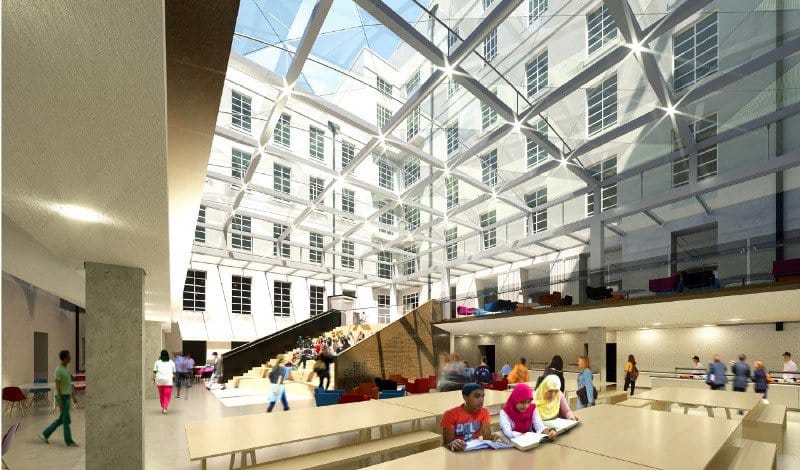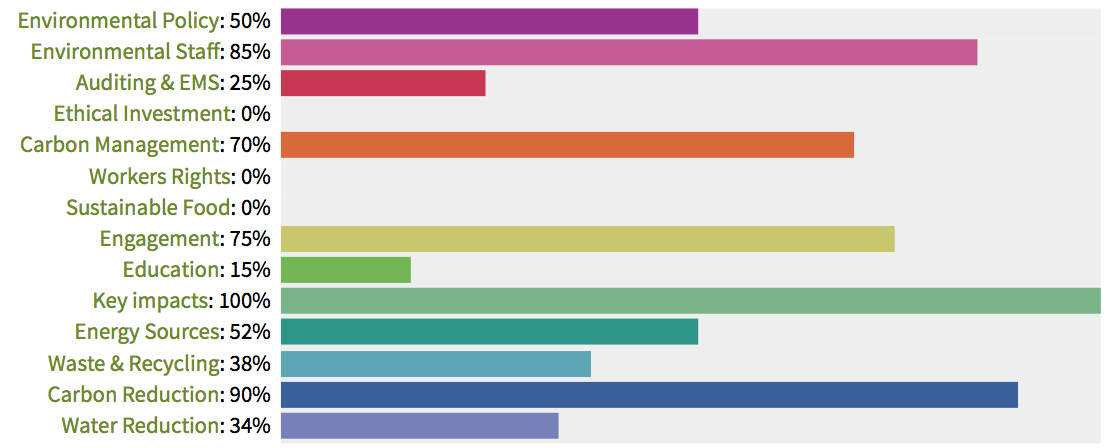SOAS gets a 2:1 in ethical university league table

Jonny Morrison, BA Chinese (Modern and Classical)
SOAS has scored 49.6% in the People and Planet 2015 league table, which assesses universities’ environmental and ethical performance, placing it 49th in the country out of 151 surveyed, coming out at an ‘upper second class’ level. This is a significant improvement from being awarded 73rd place in 2013.
Universities are scored on 14 criteria, ranging between ethical investment, energy source and workers’ rights. The only 100% score that SOAS received under the “Key Impacts” criteria is to be disregarded, as every university received 100% due to the complexity of the results gathered by the survey.
SOAS’ 0% score under “Workers’ Rights”, due to having no certification for the working conditions of university staff, farmers and producers of crops in university global supply chains and workers involved in the manufacturing of goods for universities. Even though SOAS is a living wage employer, it does not receive the score for that, as it is not accredited by the Living Wage Foundation. In November, SOAS students voted unanimously to push for SOAS to affiliate with Workers’ Rights Consortium and Electronics Watch, which aim to ensure that all the garments and electronics SOAS purchases will be monitored for abuses of labour rights in their supply chains.
The first meeting of Sweatshop Free SOAS will be held on 5th February at 7pm in the Institute of Education Café.
According to People and Planet, SOAS also lacks “robust and publicly available ethical investment policy”, leading to a score of 0% on “Ethical Investments”. The governing body of SOAS is expected to make a decision regarding permanent fossil fuel divestment in April 2015, following the creation of a working group in November 2014.
The highest scoring section on SOAS’ ethical profile was “Carbon Reduction” at 90%. The carbon reduction intensity formula used to calculate this takes into account the size and activities of the university, as well as any expansion to the institution. This has been helped by the 2009 launch of the Energy Management Group, a pan-Bloomsbury college group, working with The Green Consultancy. In 2011 SOAS installed systems to recycle excess heat from its combined heat and power plant, which is estimated to have saved approximately 194 tonnes of CO2 per year.
An area set to improve next year with the opening of the Senate House North Block is the water consumption of the university. A 14,000-litre tank has been installed below the courtyard of the Grade II listed building. Rainwater will run off the glass roof of the main atrium, before being cleansed with ultraviolet light, ready to be used in the building’s toilets.
Both Environmental Association for Universities and Colleges and Association of University Directors of Estates criticised the usefulness of the survey, with many universities complaining that the time allocated for completion of the survey made it too onerous to do so. Due to these time constraints, SOAS returned information about 10 of the 13 sections, with the remaining 3 sections being supplied from publically available information.




